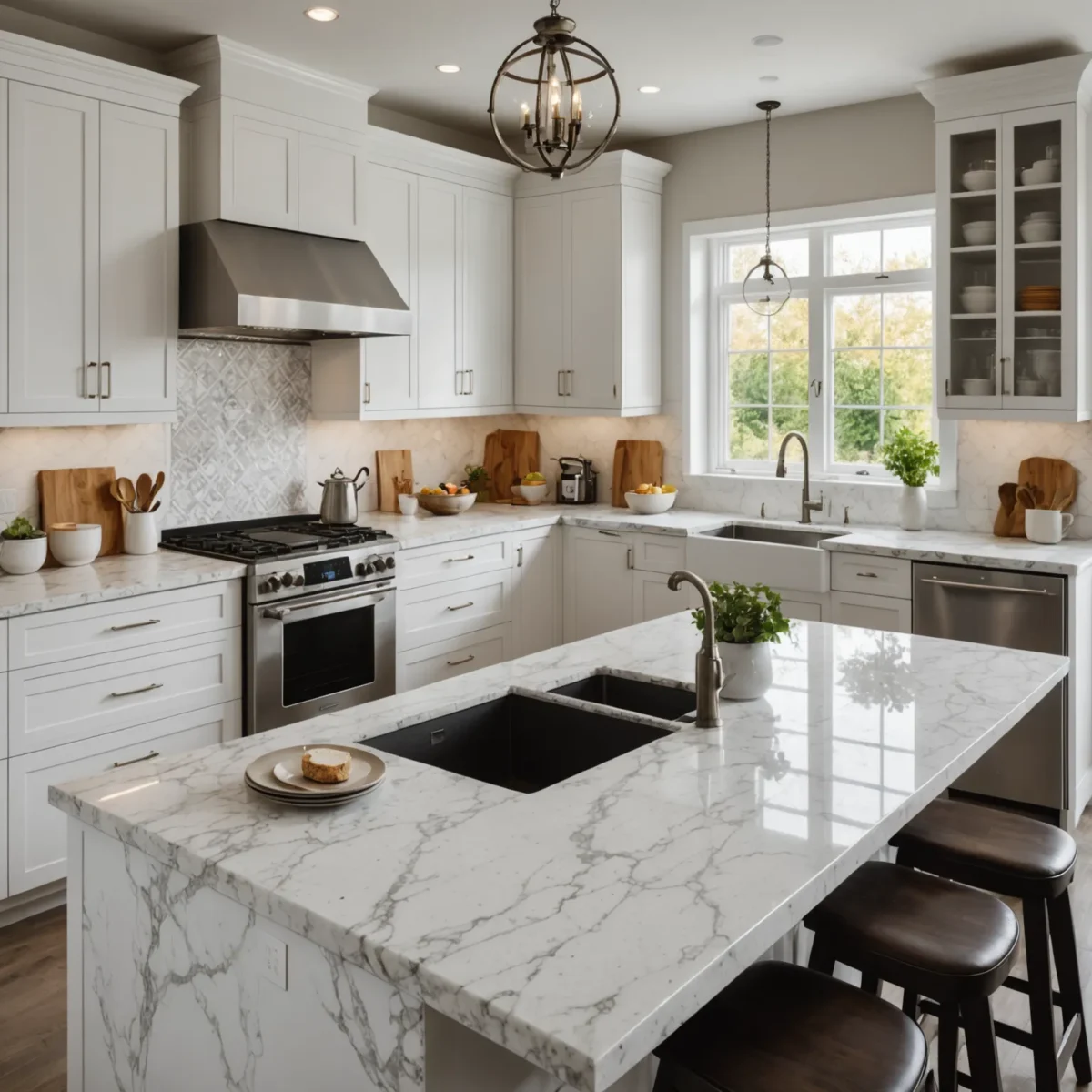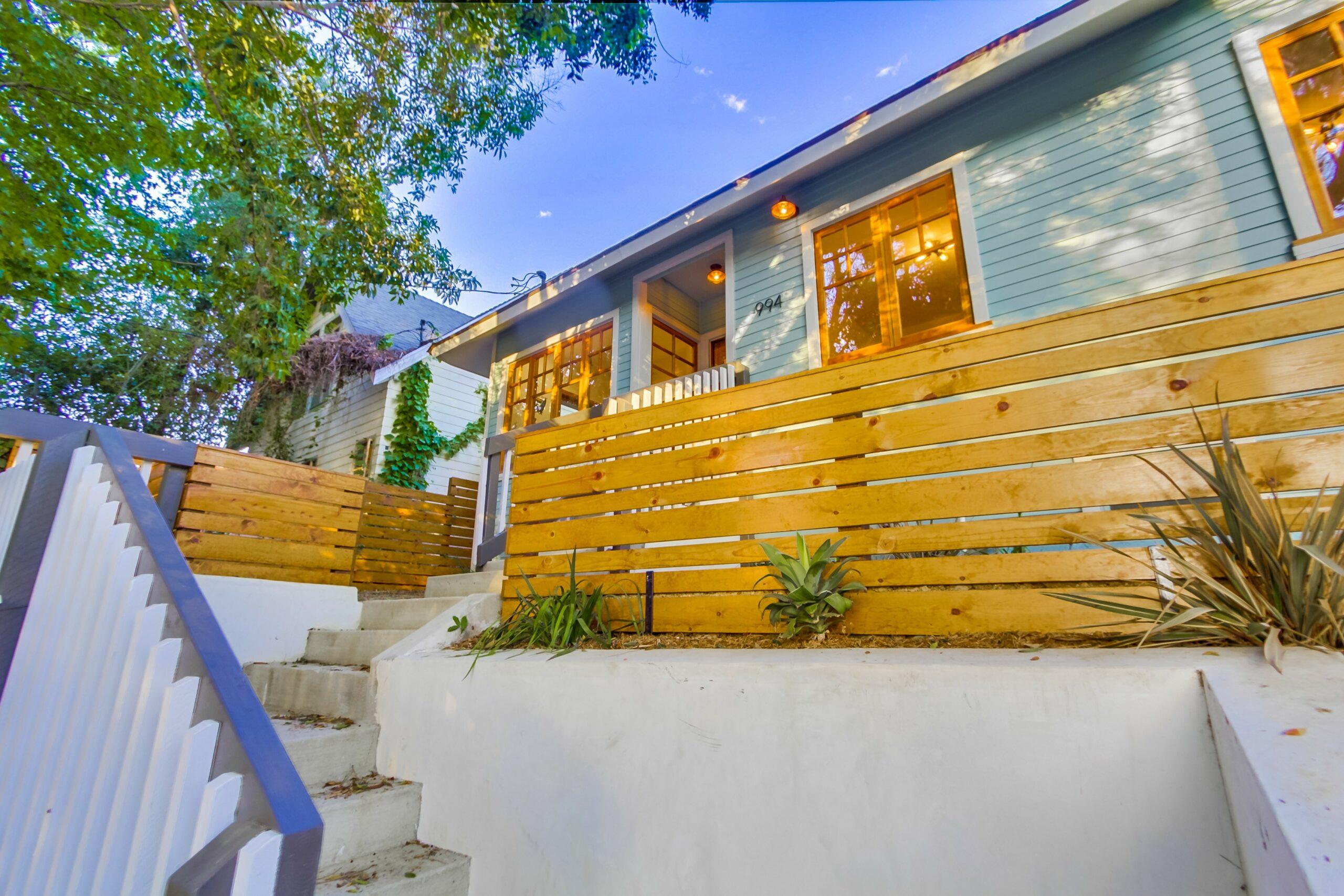Introduction: Why Countertop Material Choice Matters
When planning a kitchen remodel, one of the most impactful decisions you can make is the choice of countertop material. Your countertops are not only a visual centerpiece but also one of the most functional elements in your home. Choosing between white granite countertops and marble involves balancing durability, aesthetics, and cost.
Granite has long been praised for its natural strength, resistance to heat, and wide range of patterns. Marble, on the other hand, is renowned for its timeless elegance and luxurious feel. Understanding the pros and cons of each will help you create a kitchen that not only looks stunning but also fits your lifestyle.
Modern homeowners often consider how their choice of natural stone affects home value and long‑term maintenance. A well‑chosen countertop can boost resale value, improve functionality, and make daily cooking more enjoyable. In competitive markets, materials like marble vs granite countertops can even influence how quickly your home sells.
Fact: Studies show that natural stone countertops can increase home resale value by 10‑15% compared to laminate or synthetic options.
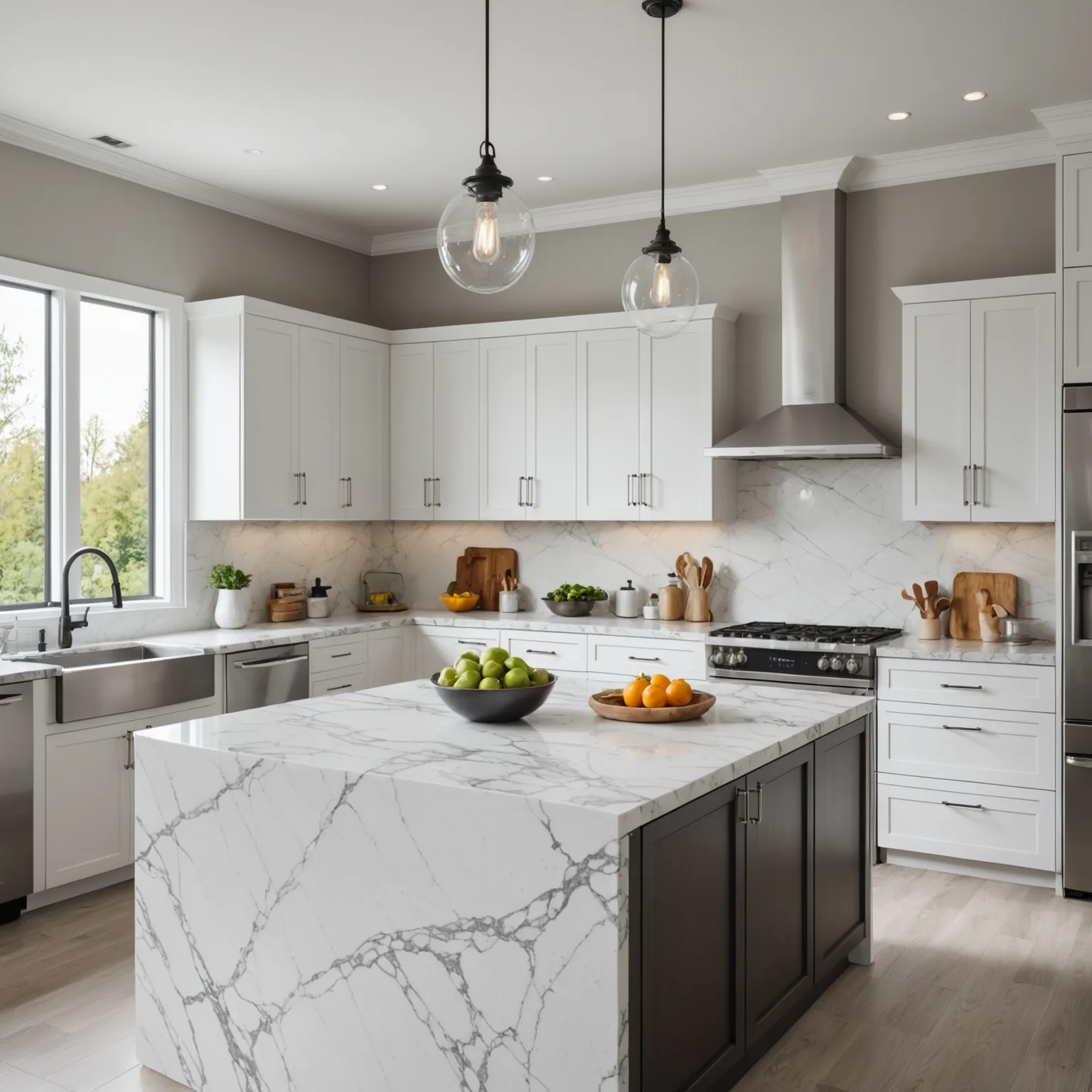
White Granite Countertops: Benefits and Drawbacks
Durability & Heat Resistance
White granite is considered one of the most durable natural stone countertop options. Its crystalline structure makes it highly resistant to chips, cracks, and heat damage. Whether you are placing a hot pan or cutting directly on the surface, granite handles daily wear and tear better than most alternatives. This makes it an excellent choice for busy kitchens or households that frequently entertain.
Maintenance & Cleaning Tips
While granite is durable, it does require occasional maintenance to preserve its appearance. Most granite countertops need to be sealed once every 1–2 years to prevent staining from oils, wine, or acidic foods. Daily cleaning is simple: use a soft cloth and a pH‑neutral cleaner. Avoid harsh chemicals that can damage the finish. With proper care, granite can remain beautiful for decades.
- Seal countertops every 12–24 months for protection.
- Wipe spills immediately to avoid discoloration.
- Use mild, non‑abrasive cleaners for daily maintenance.
Design Appeal in Modern Kitchens
One of granite’s biggest advantages is its natural variety. No two slabs are exactly alike, which adds a unique character to every kitchen. White granite is especially versatile, fitting seamlessly into contemporary designs, farmhouse kitchens, or transitional spaces. It pairs well with white cabinets, dark islands, or natural wood tones.
Tip: Honed white granite with matte finishes is perfect for modern minimalist kitchens, while polished granite works well in traditional settings.
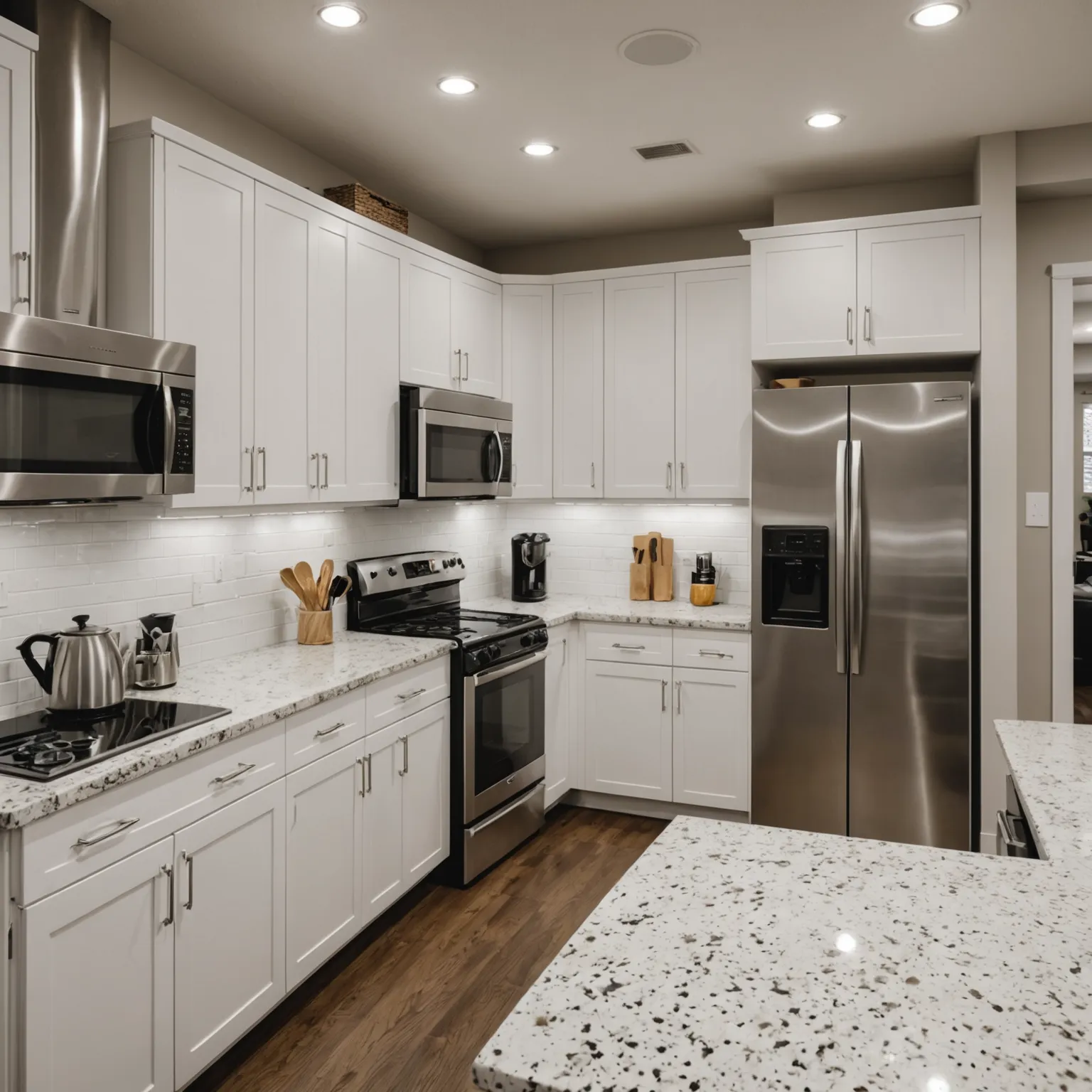
Marble Countertops: Pros and Cons
Timeless Aesthetics & Luxury Feel
Marble has long been associated with luxury and timeless elegance. Its soft veining and smooth surface create a sophisticated look that elevates any interior remodeling project. White marble in particular reflects light beautifully, making small kitchens feel brighter and more open.
Scratch & Stain Concerns
The main drawback of marble is its softness compared to granite. It can scratch and etch more easily, particularly from acidic substances like lemon juice or wine. Regular sealing helps reduce the risk of permanent stains, but marble requires a more careful maintenance routine. For households with young children or frequent entertaining, this is an important consideration.
When Marble is the Right Choice
If your goal is to achieve a high‑end aesthetic and you don’t mind a bit of extra care, marble is a fantastic option. Many designers recommend marble for kitchen islands or showpiece areas where its visual impact is most appreciated. It’s also a top choice for bakers, as its naturally cool surface is ideal for rolling dough.
- Perfect for luxury and classic kitchen designs.
- Requires sealing 2–3 times per year for best results.
- Best for lower‑traffic areas or homeowners comfortable with patina over time.
Expert Insight: Many high‑end homes use marble for its prestige, accepting that slight wear adds character rather than detracts from beauty.
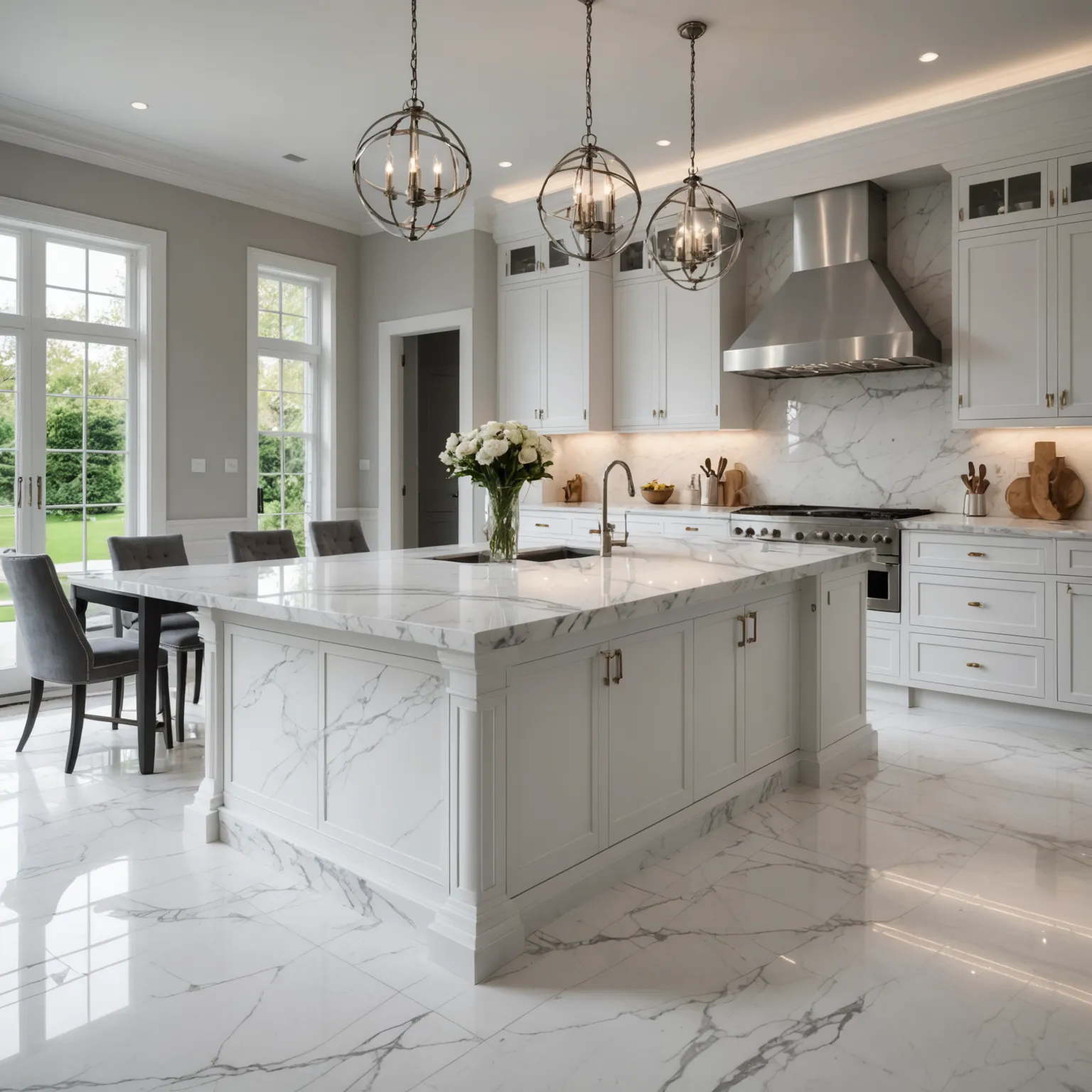
Granite vs Marble: Key Comparison Table
To help visualize the difference between marble vs granite countertops, the table below compares durability, heat resistance, maintenance, and cost. This overview is useful for anyone weighing aesthetics against practicality.
While both are natural stones, granite is better suited for high‑traffic kitchens, whereas marble is best reserved for spaces where elegance takes priority over durability.
| Feature | White Granite | Marble |
|---|---|---|
| Durability | Very High | Moderate |
| Heat Resistance | Excellent | Good |
| Maintenance | Low | High |
| Price Category | Generally more budget-friendly | Typically higher investment |
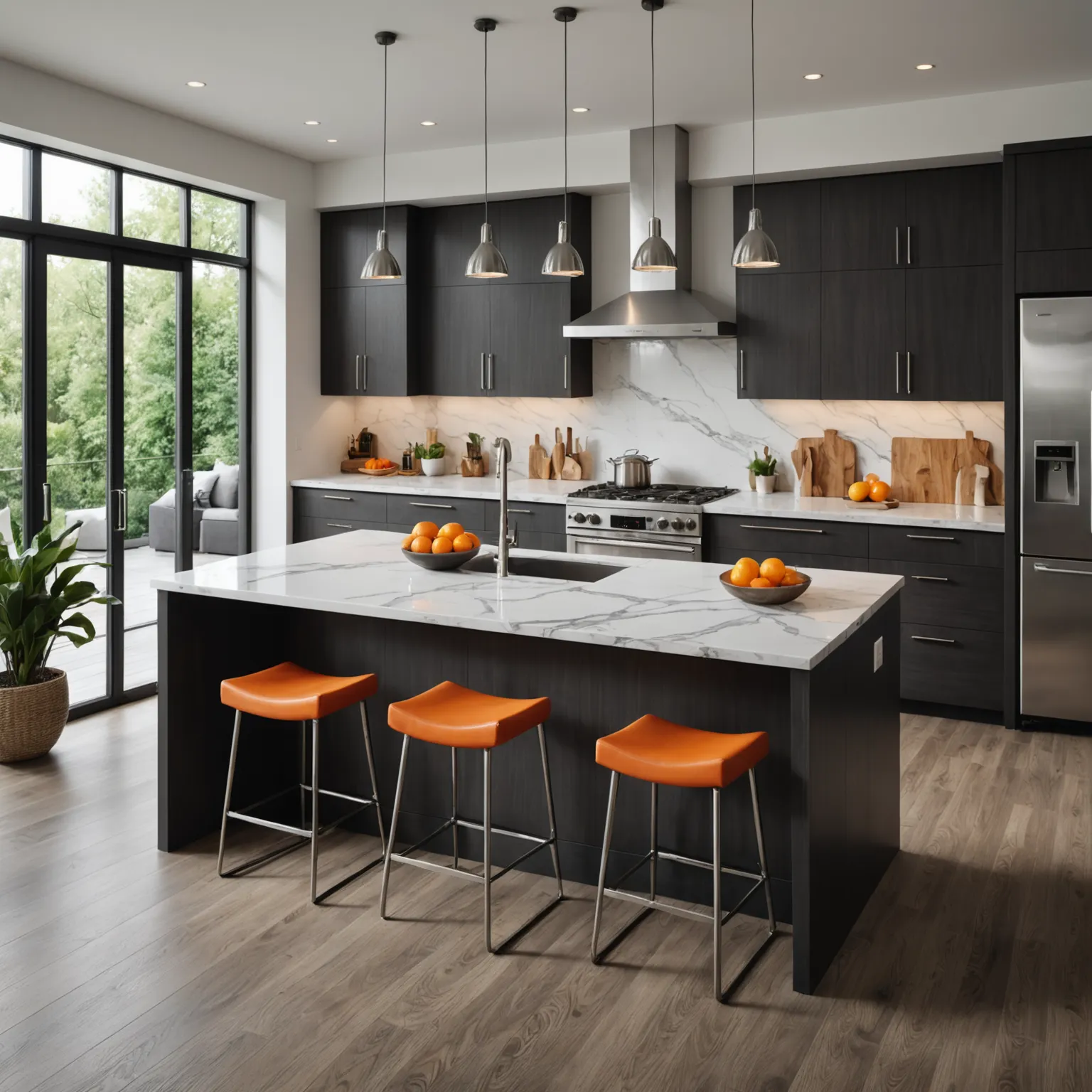
Cost Difference Between Granite and Marble
The cost of granite and marble countertops depends on the type of stone, origin, finish, and installation complexity. Granite is generally more budget‑friendly, especially for large kitchens. Marble is often priced higher because of its premium appearance and the additional labor required to handle it carefully during installation.
For homeowners planning a full renovation, it’s important to consider both material and installation factors when budgeting. Marble typically sits at the higher end of the cost spectrum, while granite offers a broader range of price points. Additional elements such as custom edges, decorative backsplashes, and cutouts for sinks or cooktops can also influence the overall project cost.
Tip: Pairing granite on main counters with a marble island is a cost‑effective way to enjoy both materials in a single kitchen.
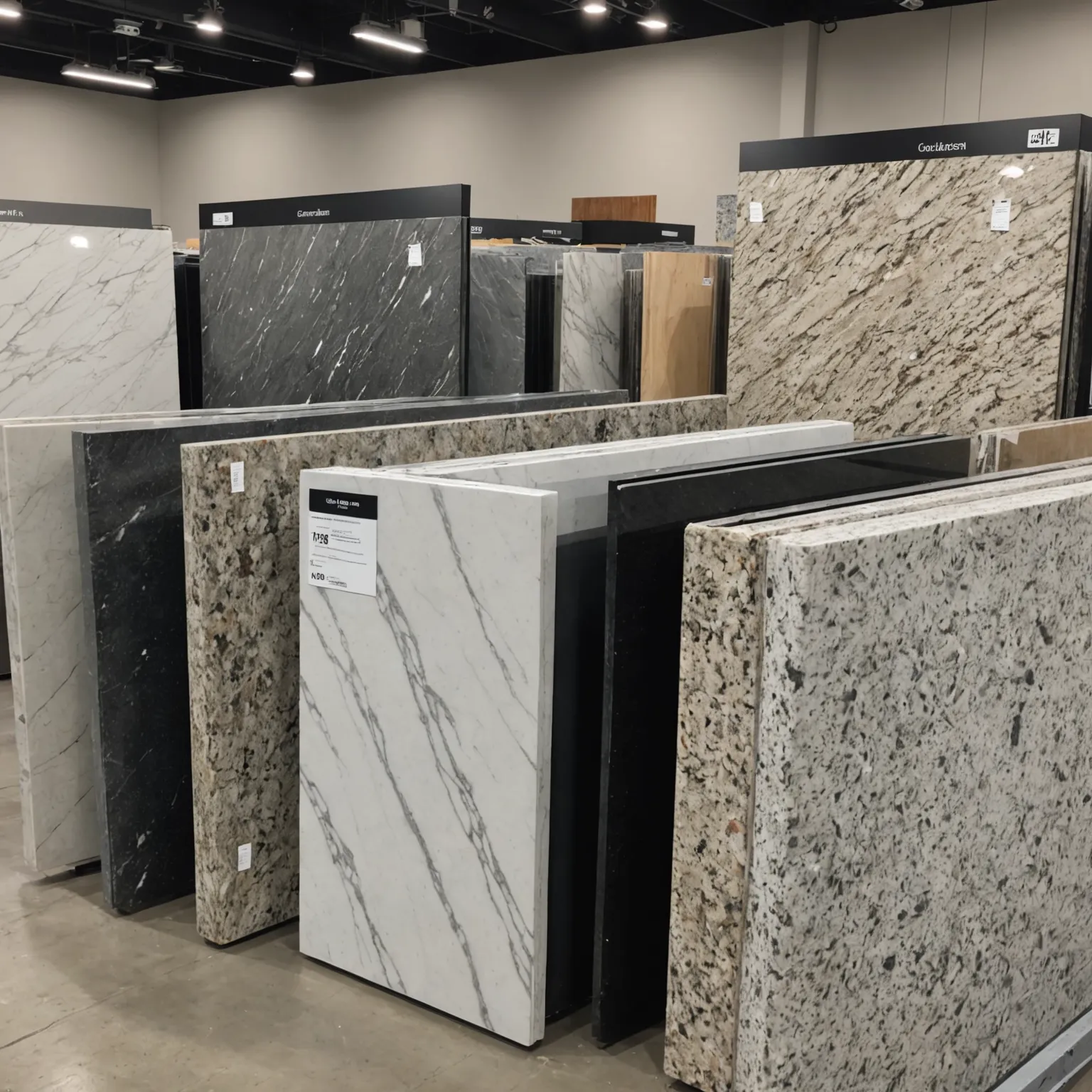
Which Countertop is Best for Your Kitchen?
Choosing between granite and marble ultimately comes down to lifestyle and design goals. If you want low‑maintenance countertops that can handle daily use, granite is the clear winner. Its resilience, affordability, and wide design options make it perfect for active households and modern kitchens.
Marble, on the other hand, is ideal for homeowners seeking an elegant statement piece. If you appreciate natural patina and don’t mind occasional maintenance, marble’s timeless beauty can transform any kitchen into a luxury space. Many designers recommend combining the two materials for a balanced approach.
Interesting: Kitchens with natural stone counters are 10% more likely to receive positive buyer feedback in real estate listings.
Explore our portfolio gallery for real project examples, or consult our general contractor team to start your custom kitchen remodel today.
FAQ
1. Are white granite countertops more durable than marble?
Yes, white granite countertops are significantly more durable than marble. In a direct marble vs granite countertops comparison, granite excels in resisting chips, scratches, and heat, making it one of the best countertops for kitchens with high traffic. Granite is a truly heat resistant countertop, which is why many homeowners select it for baking, cooking, and entertaining. Marble, while luxurious and elegant, is softer and prone to etching, so it may not be ideal for heavy use in a white granite kitchen setting.
2. Which material requires less maintenance, granite or marble?
Granite is widely considered a low maintenance countertop option compared to marble. Most natural stone countertop options require some sealing, but granite typically needs it only every 12–24 months. Marble requires more frequent sealing and is more susceptible to stains and etching from acidic foods. In kitchen countertop trends, granite remains a top choice for families who need practical, long-lasting surfaces.
3. What is the price difference between marble and granite?
The price difference between marble and granite depends on factors like quality, finish, and origin. Generally, granite tends to be the more budget-friendly option, while marble often falls into a higher investment range. Rare stones, premium finishes, and complex installations can significantly increase overall expenses. When doing a countertop materials comparison, granite is usually preferred by budget-conscious homeowners, while marble appeals to those seeking a high-end, timeless look in a luxury kitchen.
4. Should I choose honed or polished surfaces for my kitchen?
When choosing between honed vs polished surfaces, consider your lifestyle and design goals. Polished granite and marble create a reflective, luxurious look but may show fingerprints and water spots. Honed finishes are matte, more forgiving, and popular in modern white kitchen remodel ideas. Both options can be applied to natural stone countertop options like granite, marble, or even granite vs quartz alternatives, depending on your desired aesthetic and maintenance level.
5. Which is better for a white kitchen remodel: marble or granite?
For a white kitchen remodel, both materials can work beautifully, but their benefits differ. White granite countertops provide durability and stain resistance, making them perfect for active kitchens. Marble delivers a soft, elegant look that complements classic or luxury designs. Many designers suggest combining the two materials to capture both beauty and function, creating one of the best countertops for kitchens that balance style and practicality.
6. Are granite countertops more heat resistant than marble?
Yes, granite is naturally more heat resistant than marble. If you are looking for heat resistant countertops that can handle hot pots and pans, white granite kitchen installations are highly recommended. Marble can withstand some heat but is more likely to suffer thermal shock or subtle discoloration over time. In a countertop materials comparison, granite scores higher for performance in busy cooking environments.
7. What are the pros and cons of natural stone countertops?
The pros and cons of natural stone vary by material. Granite offers high durability, low maintenance, and a wide variety of colors, making it one of the best countertops for kitchens. Marble provides a timeless, elegant look but requires careful maintenance. Both belong to the most desirable types of stone for kitchens and outperform synthetic options in aesthetics and home value. However, they are heavier and require professional installation.
8. How does granite compare to quartz for kitchen countertops?
In a granite vs quartz comparison, quartz offers uniform patterns and lower maintenance since it is non‑porous. Granite, however, delivers authentic natural beauty and better heat resistance. Many kitchen countertop trends show homeowners mixing both materials—using granite for the main counters and quartz or marble for islands. Granite remains a top pick in natural stone countertop options for those who value unique veining and long-term durability.


